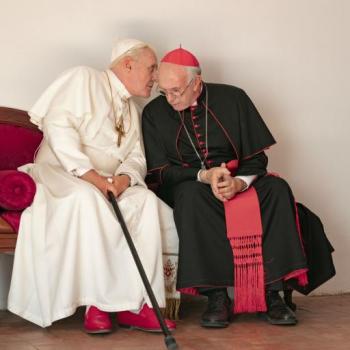Gabriel Axel, a director whose 1987 labor of love, “Babette’s Feast,” received the first foreign-language Oscar awarded to a Danish motion picture — and heralded a growing popular interest in all things food — died on Sunday in Copenhagen. He was 95.
His death was confirmed by a spokesman for the Danish Film Directors Association.
Mr. Axel struggled for more than a decade to find backers for a film in which the characters shared equal billing with plates of ravishingly beautiful blinis, truffles and pastry-crusted quail. He wrote his first draft of the script, based on a short story by the Danish-born writer Isak Dinesen, in 1973.
Working steadily on French and Danish television and movie projects in the 1970s and early ’80s, Mr. Axel doggedly pursued his vision for 14 years before the film was completed and released.
“Babette’s Feast” was a surprise Oscar winner as best foreign-language film — it beat the heavy favorite, Louis Malle’s “Au Revoir les Enfants” — partly because of rave reviews and word-of-mouth support, and partly because of new rules adopted in the early 1980s by the Academy of Motion Picture Arts and Sciences requiring voting members to actually see the films they voted on.
Mr. Axel was a week shy of his 70th birthday when he took the podium in Los Angeles in April 1988 to accept the award. After saying his thank-yous, he quoted a line from his film: “Because of this evening, I have learned, my dear, that in this beautiful world of ours, all things are possible.”
“Babette’s Feast” tells the story of Babette Hersant, a Cordon Bleu chef in 19th-century Paris who flees political upheaval and personal tragedy to find sanctuary in rural Denmark. There Babette, played by the French actress Stéphane Audran, works as a housemaid and cook for a pair of aging, unmarried sisters living ascetic lives as wardens of a pleasure-shunning, Puritan-like community founded by their father, who is now dead.
The story’s climax involves a five-star meal of many courses prepared by Babette that serves as a kind of revelation, opening the palates (and souls) of her mistresses and their flock to the communal joys — spiritual and sensual — of a shared meal, lovingly prepared.
The film’s spiritual overtones made it a favorite of both dedicated epicures and the devoutly religious. In 2010 Cardinal Jorge Bergoglio of Argentina — later to become Pope Francis — told journalists that “Babette’s Feast” was his favorite film. The film’s success coincided with, and helped propel, a broadening popular interest in haute cuisine. In the next decade there would be a proliferation of cookbooks, television shows and movies catering to epicurean tastes — including “Like Water for Chocolate” (1992), “Belle Époque” (1992), “The Wedding Banquet” (1993), “Eat Drink Man Woman”(1994) and “Big Night” (1996).











